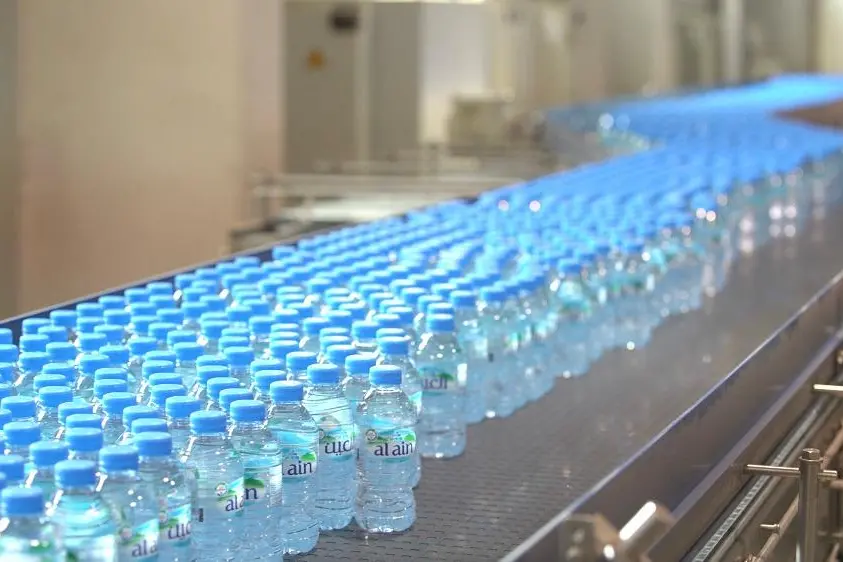PHOTO
Abu Dhabi-based food group Agthia reported a 2.1 percent increase in net profit for 2018 of 210.5 million United Arab Emirates dirhams ($57.3 million), despite a 2.2 percent decline in group revenues to just over 2 billion dirhams.
The company said in a press statement accompanying its preliminary results issued on Sunday that its like-for-like profit was actually 11.5 percent higher, and that like-for-like revenues also showed an increase of 2 percent once one-off impacts such as opportunistic back-to-back grain trading in 2017 and lost sales to Qatar were stripped out.
Agthia said that its Al Ain Water brand managed to grow market share, achieving 5 percent volume growth despite what it described as “aggressive price promotions in the market throughout the year”. The firm said that if its Alpin and Al Bayan water brands are included, Agthia now commands a 30 percent share of the UAE'S bottled water market.
The company also said in its statement that its food business, which includes bakery and frozen vegetable products, achieved “solid top and bottom line growth” on the back of higher revenues in Egypt, while its community support division containing company-owned stores selling to communities in Abu Dhabi and Al Ain grew revenues by 47 percent “thanks to an aggressive product portfolio expansion and improvements in in-store shopping experiences”.
Tariq Al Wahedi, Agthia Group CEO, said in the statement that the company had “displayed strong performance across major metrics throughout our product portfolio in a year which was earmarked by aggressive competitive activity against the backdrop of declining consumer spend and changing purchasing habits, both at home and in international markets”.
He said the firm would continue looking to build market share across different categories, as well as “strengthening our regional footprint through geographic expansion”.
Nishit Lakhotia, an analyst with SICO Bahrain, told Zawya that the variation in the company's fourth quarter numbers from the preceding three quarters came from an improved performance in its agribusiness division.
“In most of the (previous) quarters it was showing negative growth. This quarter was the highest in terms of revenue, and last year the fourth quarter was weak. Even if you look at it y-on-y, it (agribusiness) is 10 percent higher,” he said in a telephone interview on Sunday.
Lakhotia said the flour business had benefited from a stronger retail penetration in the Northern Emirates, and the fact that the feed business had sold higher volumes of higher value products.
“They have beaten their own full-year guidance, but if you look at it from an overall point of view, one thing which benefited them was the subsidy,” he said, referring to a subsidy the company received for flour products that had been due to expire in July 2018, but which was extended for a further six-month period.
“If you look at the overall results, water has done just about OK given that aggressive price promotions offset the volume gain in the Emirates and no details (were given) of how their Saudi water business is doing,” Lakhotia said.
“Going forward, where Agthia goes from here is something we need to see in the numbers – how much can they further save on costs and how their agribusiness does post-final leg of subsidy,” he said, pointing out that competition in the flour market also remains high.
(Reporting by Michael Fahy; Editing by Mily Chakrabarty).
Our Standards: The Thomson Reuters Trust Principles
Disclaimer: This article is provided for informational purposes only. The content does not provide tax, legal or investment advice or opinion regarding the suitability, value or profitability of any particular security, portfolio or investment strategy. Read our full disclaimer policy here.
© ZAWYA 2019




















